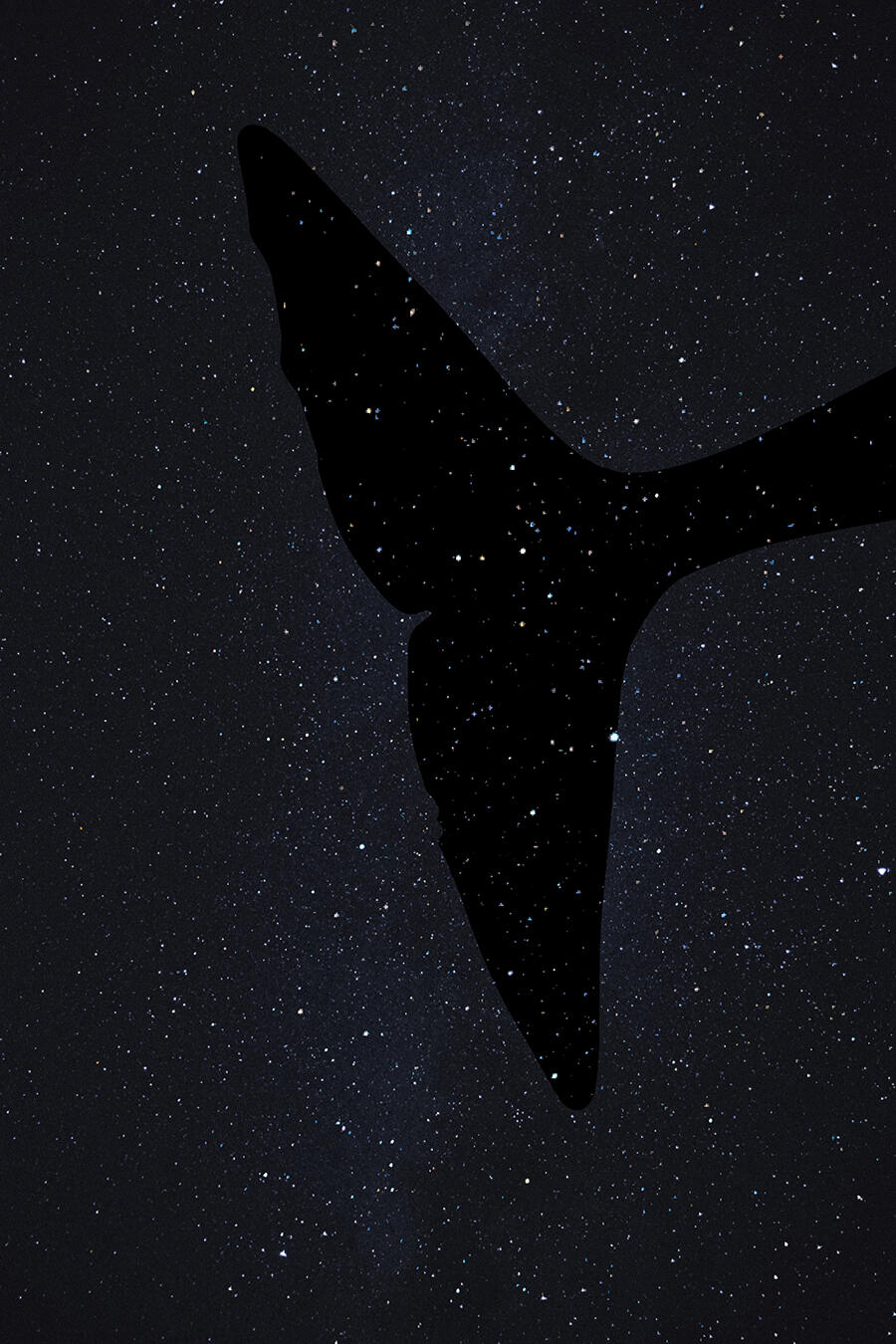The Power and Prose of Whale Song
Unidentifiable noises from the ocean floor beg the question, how do we name sounds we don’t fully understand?
Unidentifiable noises from the ocean floor beg the question, how do we name sounds we don’t fully understand?

This article appears in the columns section of frieze 241, ‘Outer Depths’
On 1 March 1999, a sound with an unknown source was picked up on the eastern equatorial Pacific autonomous hydrophone array. Without clear evidence of origin, the sound was named by ear and, likened to a woman’s voice, the obscure sonic event became known as Julia. I forget how I first heard about Julia or listened to the brief sighing call of the record, but ‘she’ has stayed with me, a ghost note in my auditory ambivalence to the document and its illusion of fixity. Because, while the audio record is one take of a moment in time and space, it is far from still, coherent or stable – its source and subject often far from knowable.
Writing is one way of moving closer to what is always in retreat. To write through listening is to move towards our sensory outer reaches, into the simultaneous difficulty and pleasure of finding words to describe what we think and feel that we hear. This is writing on the edge of comprehension, of surrender to this edge, and even beyond it.

I have been negotiating this edge-land over the past three years with artist Vibeke Mascini, corresponding about ‘silent whale’: a document in the British Library Sound Archive held silent because it is outside the human audible range. The infrasonic recording of a blue whale, taken on Valentine’s Day 2002, is both subtle and strong in its vibratory effects: it has physically pushed us to our auditory limits, a place where writing and reading have taken up the work of what is beyond immediate grasp, as we deeply consider the human compulsion to ‘make sense’ of flux and indeterminacy.
I have been thinking of Julia again recently, in relation to the unknowable sound of ‘silent whale’, of what is brought to the surface and transformed into something else entirely. Both sounds were recorded underwater; they share an acoustic resemblance, with the liquid medium they move through made audibly present; but as we listen to them on instruments made for human hearing, we must accept these as altered sounds. And so, I have been thinking too of the potency and persuasion of naming, when as listeners we are directed to what we are hearing by a singular definition of the sound source – a source which is always more than one, always beyond us even if in front of us, but which is granted some notional coherency through naming.

We name for many reasons, intentions and motivations, with the stakes in definition continuously shifting, but naming is one way to bring the distant or unfamiliar closer. Naming can be a fast cipher to ‘know’ without doing the harder work towards knowing: slower work, forever incomplete. So now, as I think about human curiosity turned to conquest, about colonial attitudes to seek out, name and claim what is experientially different and ‘new’, I keep returning to the brilliant resistance of sound to ownership through definition, how it exceeds linguistic categories or containers, the way it wants to move.
The act of naming Julia provisionally held the sound in place – rendered sub-aquatic siren and her muffled song – but Julia, or ‘the sound formerly known as Julia’, is now thought most likely to have been made by an iceberg run aground off Antarctica. Still, the original location of the sound event is inexact. An iceberg called Julia – to me a remarkable fable for exposing the way sound pulls on our desire to ‘make sense’ by joining it to a source, however speculative, pulling too on our biases and imaginative capacities until something is given form and intent: the movement of ice becomes the liquid breath of a woman’s body.

When we listen to an acoustic object with a name, we approach it through someone else’s definition of it. That the person who named the sound of this faraway iceberg ‘Julia’ chose to hear a female voice is not lost on me. This is the detail that keeps me returning, keeps me questioning: whose desire to ‘make sense’ directs my listening? How can we listen through a given name, narrative or history? How can we surrender to the edge, to listen beyond it?
This article first appeared in frieze issue 241 with the headline ‘Beyond Listening’
Main image: Wu Tsang, MOBY DICK; or, The Whale, 2022. Courtesy: Schauspielhaus Zürich, Design Pics Inc / Alamy Stock Footage
























